Windows 12: Release Date, Features, & Upgrade Guide
View Count:


Dewan Farhan is a content writer with a passion for technology. He has a deep understanding of the latest trends and developments in the tech industry, and he uses his writing skills to share his knowledge with others in a clear and concise way.
After the release of Windows 11 in 2021, the whole Windows community was thrilled to experience the latest version of the OS. However, the thrill quickly turned into disappointment as users constantly faced multiple bugs, crashes, and a bunch of system defects.
So, Microsoft began to roll out more stable updates to Windows 11 and now we are almost at the end of Windows 11. The rumor has it that Windows 12 will be released soon in mid-2024 after the Microsoft Build conference.
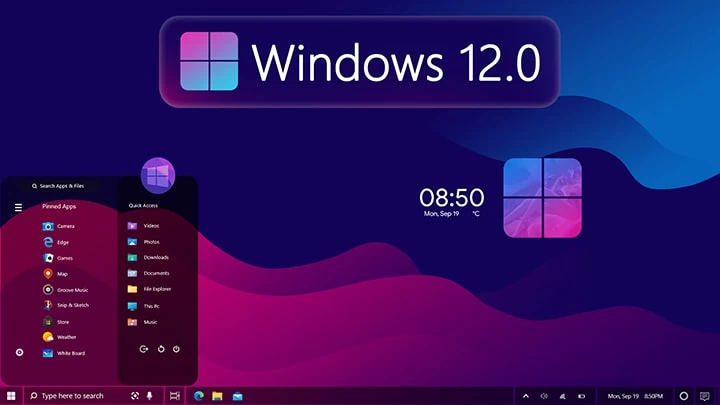
Keeping rumors aside, we can positively guess and speculate about a bunch of Windows 12 features and details due to the constant leaks and rumors.
Here’s what you can expect from the upcoming Windows 12 based on the hints and rumors by officials and credible sources!
Current Phase of Windows 11 & Leaked Release Date of Windows 12
Before getting into the details let’s check out the current state of Windows 11. Due to its unstable release in 2021, users started hating the OS fanatically which created a negative reputation for Microsoft.
Considering the two big feature updates 22H2 (September 2022) & 23H2 (October 2023), Microsoft has pushed at least 26 updates to date. However, if you consider all the small and security patches as well, the number goes up in the range of 30-40.
So, Microsoft clearly has learned its lesson and is working diligently towards offering a more seamless and refined experience through its latest OS.
Now, let’s come to the discussion of whether Microsoft is planning to release a completely redesigned and new OS just after 3 years of releasing its current one.
Well, there is still no official statement or press release from Microsoft where they announced or hinted at the arrival of Windows 12. However, the industry has reported enough rumors for experts and users to believe that the new release is just around the corner.
The current estimated timeline for the Windows 12 release is around June 2024, just after its Microsoft Build conference in May. This latest piece of information comes from a popular Taiwanese news portal named Commercial Times which has a strong belief that the information is accurate.
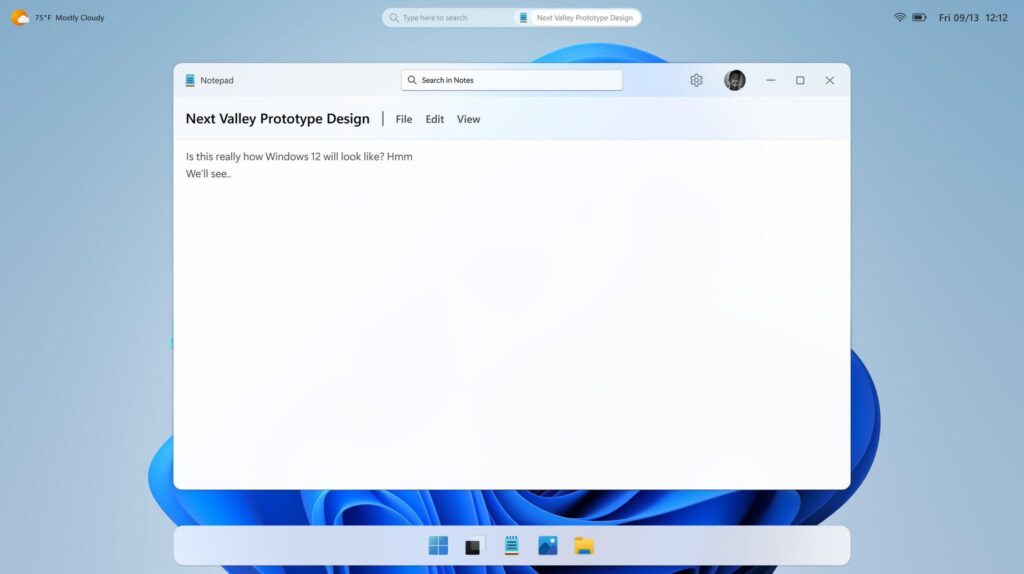
Another report from Windows Central suggests that industry insiders are calling the next Windows 12 OS “Next Valley”. However, as hinted by Intel EVP David Zinsner, “Next Valley” can be a clean refresh of the current version of Windows 11 as well. So, we can’t yet be sure whether the codename is accurate or not.
While we can’t pinpoint the exact date or timeline of the Windows 12 release, one thing is sure the OS will not be changed substantially. Because Microsoft has just now created a very modern-looking interface with Windows 11. So, it would not make sense to change the UI of the whole OS so early in the making.
What are the Speculated Features of Windows 12?
Now that you learned a bit more about the rumored release date, it’s time to know what feature updates we can expect. Here are the top feature changes we can speculate for Windows 12 to have-
Refined Design
At the Microsoft Ignite keynote, they revealed a glimpse of what could be the newest look of Windows. The most notable change is the floating taskbar and some major icon changes in the UI.
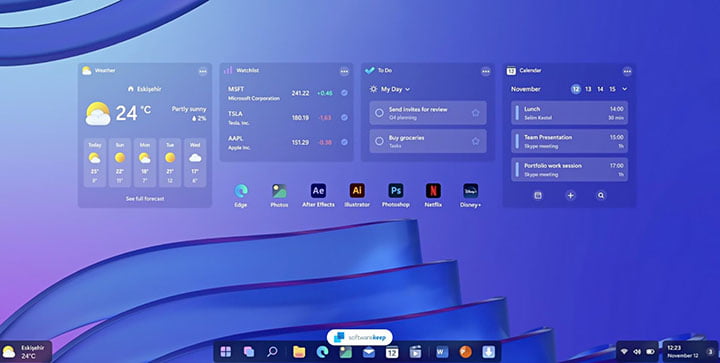
On top of that, the new OS might include Mac-style display icons that show the date, Wi-Fi, and battery in the top right corner. While that part of the OS is still not confirmed yet, you can expect some major changes in the home screen from its predecessor.
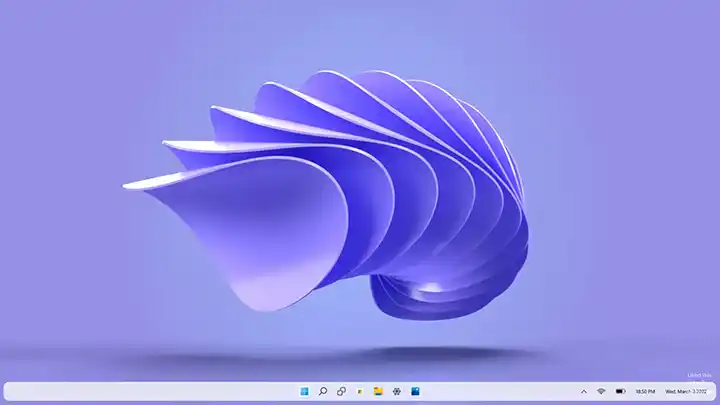
Through the early design prototype, it has been also rumored that touch laptops and tablets running Windows will have better UI navigation than before.
Performance Improvements
With the latest update, users can surely predict that some performance updates will be added. In recent days, Microsoft Edge has become very heavy and RAM-consuming. So, Microsoft is trying to fix that with its latest drop and performance enhancements.
Furthermore, it has been stated earlier that no 32-bit Arm apps will be supported in Windows 12. To enable a cohesive and seamless transition to better emulation and Arm-centric platform support, Microsoft has taken these measurements.
AI Implementation
One thing that is crystal clear about Windows 12 is the integration of ChatGPT models and Bing Search in the UI itself. You can expect the whole interface to stay connected with certain AI features such as better text recognition, task automation, custom themes, and much more.
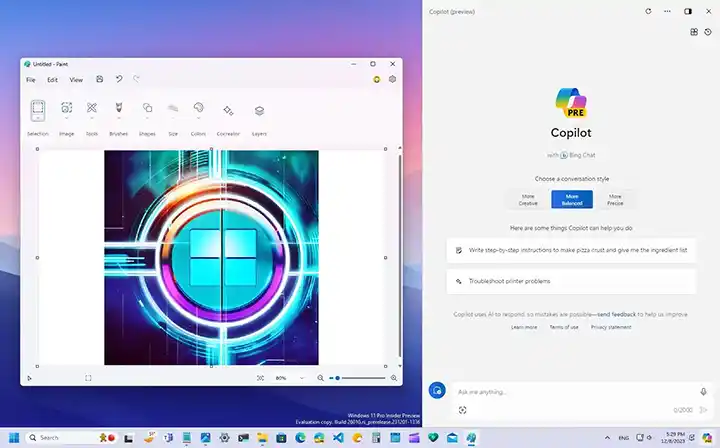
With the Microsoft Copilot button in the interface, users running Windows 12 can usher into the new era of computing and multitasking!
Stable Updates
Due to the negative image of the initial updates of Windows 11, Microsoft has assured its users that the next major OS will be more fluid than ever. Moreover, users can expect Windows 12 to have the best schedules for stable updates, security patches, and bug fixes.
Also, you will be getting the updates sooner than Windows 11 due to its rumored modular design. With that feature in place, Microsoft will be allowed to block a certain portion of the system partition for better update support.
Hardware Requirements for Windows 12
There could be some added hardware limitations or requirements bundled with the Windows 12 update. As seen in the previous Windows 11 update, you need to have Secure Boot and TPM 2.0 turned on. Otherwise, Microsoft does not automatically push updates to your device.
So, you can expect the same hardware requirements for Windows 12 as well. Furthermore, as AI will be deeply rooted in the OS, you can expect certain neural requirements for higher-end tasks as well. Overall, there might be some minor hardware requirements added to the existing ones for Windows 12.
Will Windows 12 Be a Free Upgrade for Previous Windows Users?
Yes, it is within the expectation that for Windows 10 and 11 users, the update to Windows 12 will be free. Similar to the previous updates of Windows 11, the Windows 12 update will be pushed via the regular OTA service.
Microsoft makes the most of its revenue for Windows OS through corporate deals with PC manufacturers. So, regular users can get the latest version of the OS with the newest PC builds or laptops.
Will You Need to Subscribe for Windows 12?
No, just like the previous Windows systems, you will not need to subscribe or pay monthly/annual fees to run Windows 12 on your PC. The update to Windows 12 is likely to be free if you are already running Windows 11 on your device.
However, if you use an older version, then Microsoft might charge you the estimated price of $139 for the home edition and $199 for the Pro. Still, the official update on the prices has not yet been revealed. So, we need to wait to get confirmation from the official sources.
Will You be Able to Upgrade to Windows 12 in June 2024?
It’s still not confirmed yet whether you will be able to update to Windows 12 after it’s announced. Usually, Microsoft announces the launch of Windows OS before its official release. You can expect the launch to initiate in July and the update through the air until October in most Windows devices.
It is also speculated that the Windows 12 insider or beta release will be launched almost 3 months before the stable version.
The best way to be in the front seat of all the latest Windows updates is to enroll in the Windows Insider program. Launched before the Windows 11 stable release, the Windows Insider program lets users be beta testers for its experimental and upcoming features early on.
So, getting into that program will allow you to get the Windows 12 update faster than others. However, do keep in mind that the beta releases can be risky and result in data loss.
Do You Have to Upgrade to Windows 12?
No, you will not be forced or bugged to upgrade to Windows 12 if you don’t want to. Windows has recently announced that it is ending its support for Windows 10 versions on all devices. However, Windows 11 has not even seen a good 3 years of updates. So, you can expect to use your Windows 11 for at least 3 or 4 years with regular feature drops.
Until the support for Windows 11 ends or you need to update to Windows 12, you can wait for the most stable version. Then, you can decide whether to update or not. You don’t have to rush anything for your current OS support.
Conclusion
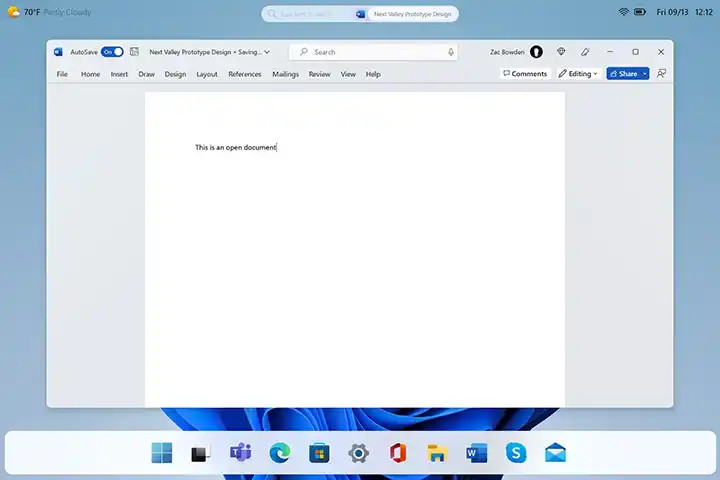
So, what are your thoughts about Windows 12? Are you looking forward to the latest iteration of Windows or thinking of waiting for a while?
Regardless of what your opinions might be, it’s clear that Microsoft is working hard to deliver the best experience after its Windows 11 fiasco!
Let’s see how Windows 12 fairs off!